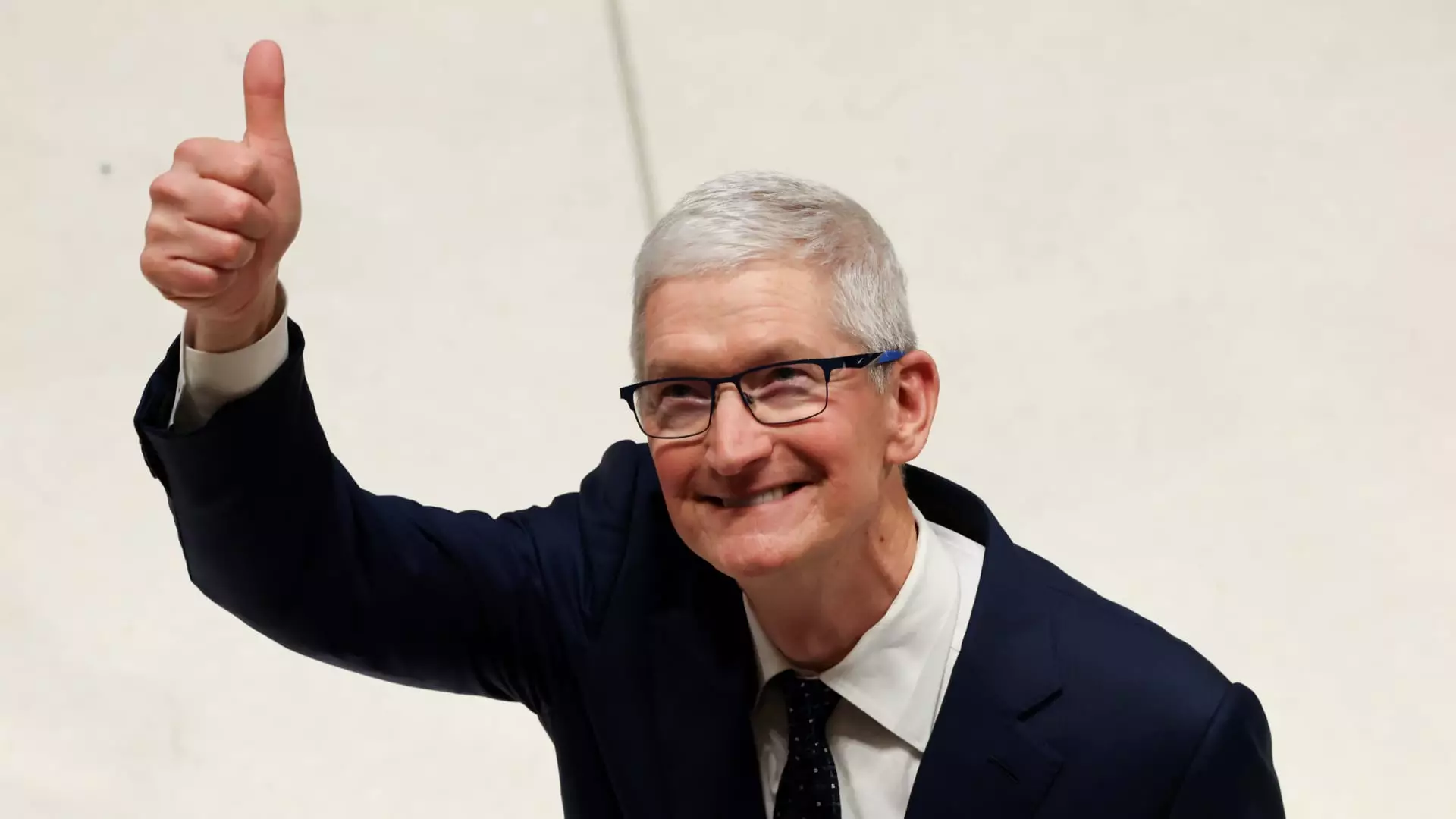In a landmark decision, Apple has emerged victorious in its battle against the U.K. government’s attempts to keep substantive details of its legal appeal under wraps. The Investigatory Powers Tribunal recently ruled against the government’s motion, which sought to maintain secrecy around an essential hearing pertaining to a contentious order demanding Apple to create a “backdoor” for accessing iPhone users’ private data. The judges emphatically declared that concealing such information would constitute a significant violation of the foundational principle of open justice, which is vital for a transparent legal system. The ruling serves as a crucial affirmation of the public’s right to be informed about governmental actions that have profound implications for individual privacy.
This ruling underscores the delicate balance between national security interests and the fundamental rights of citizens to access information regarding government surveillance practices. Critics of the secrecy sought by the U.K. Home Office rightly argue that resorting to backdoor access to personal information presents a slippery slope toward invasive oversight, undermining the very principles of democracy and trust in the digital realm.
The Backdoor Debate: Privacy versus Security?
At the heart of this legal entanglement is the controversial demand from the U.K. government for tech companies to weaken their encryption protocols to facilitate unimpeded access to private user data. Apple’s Advanced Data Protection system, which boasts robust end-to-end encryption, has become a prime target for governmental scrutiny amid rising fears of crime and terrorism. Notably, lawmakers in various countries, including the U.S. and the EU, have voiced their dissatisfaction with encryption technologies that they perceive as creating safe havens for malicious actors.
However, this perspective overlooks a crucial aspect: while security is undeniably important, the erosion of privacy can have dire consequences. Apple’s refusal to create a backdoor reflects a commitment to user security, emphasizing that such compromises can ultimately jeopardize the very individuals they are meant to protect. The decision to withdraw its Advanced Data Protection capabilities for U.K. users in February symbolizes a broader struggle between corporate responsibility toward user privacy and governmental pressure to compromise ethical standards in the name of security.
The Long-Term Implications of Apple’s Stance
Apple’s position on this issue is intrinsically tied to its brand identity as a champion of user privacy. As the company has reiterated in its communications, it has never and will never develop a backdoor or master key for its products. This clear stance not only solidifies Apple’s reputation in the tech industry but also serves as a rallying point for privacy advocates around the globe.
By prioritizing user privacy, Apple is challenging not just the U.K. government’s overreach, but also setting a powerful precedent for other technology companies to follow. It forces industry leaders to rethink their strategies and consider whether upholding user privacy is worth the potential fallout from government demands. In a world increasingly dependent on digital connectivity, where data breaches and cyberattacks are rampant, the assurance of strong encryption may well become a fundamental selling point for companies striving to earn consumer trust.
A Call to Action for Consumers and Advocates
As the digital landscape continues to evolve, it is imperative for consumers and advocacy groups alike to engage with these pressing issues. With powerful corporations and governments at play, the responsibility lies with the public to push back against policies that threaten their privacy rights. Advocating for transparency in these negotiations is not merely about opposing state overreach; it is about recognizing the need for ethical practices in technology.
Moreover, consumers must become aware of the implications of their choices. Supporting companies that prioritize privacy reinforces the importance of ethical standards in technology. The outcome of this battle between Apple and the U.K. government doesn’t just concern one tech giant; it shapes the broader narrative surrounding privacy rights in the age of information.
Our collective vigilance and action will determine the future of digital rights. Embracing a culture of informed dissent and advocacy will empower individuals while reinforcing the notion that strong encryption, privacy, and security are not mutually exclusive but rather essential components of a free society.

